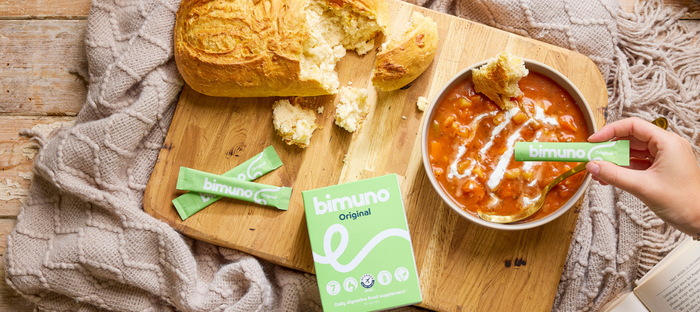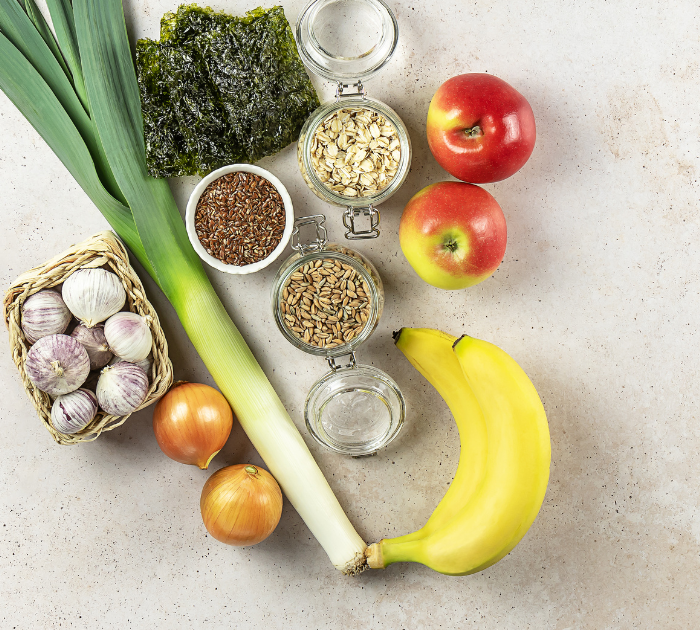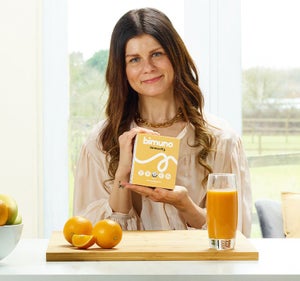Why is sleep important?
Never underestimate the power of a good night’s sleep! In total, we spend around a third of our lives asleep – and the body relies on this rest to recharge. As well as reducing fatigue and lethargy, a restful night’s sleep is thought to be beneficial to mental health, improving mood and day-to-day cognitive function. Sleep helps us to feel more rested and re-energised, and the advantages that come with a regular and predictable sleep pattern are diverse. With a global rise in poor sleep health, and many of us struggling to get period of rest, it’s no surprise that we are looking to sleep aids, sleep supplements and other ways to help us get some extra Z’s in. [1] It’s widely believed that maintaining good sleep health has key advantages to both mental and physical health. By reducing stress, and allowing the muscles time to recover, it is thought that sleep health could also be connected to areas such as cardiovascular health. [2] A good night’s sleep could also be the key to glowing skin - sleep deprivation decreases blood flow to the skin around the face, creating a greyer and less colourful complexion. [3]
So if sleep is so important, whats the links between prebiotics and sleep?
The relationship between prebiotics and sleep health
When we look to improve our sleep health and ensure a more restful night’s sleep, we tend to focus on the sleep environment – dark rooms, evening rituals, meditation are just a few examples. And yet, could the secret to better sleep health lie in the gut? Scientists at the University of Colorado Boulder conducted a study to find out if sleep can be improved by prebiotics – indigestible carbohydrates which feed beneficial, of often call ‘good’ bacteria inside the gut.
The ‘good’ gut bacteria inside our digestive system are known to have widespread advantages to the body, including supporting mental health and wellbeing via the ‘gut-brain axis’, a two-way communication network between the brain and the gut. Because of this, our gut microbiome, the community comprising trillions of bacteria in the gut, could support a more effective sleep pattern. By nourishing these good bacteria and encouraging them to increase in number, it is thought we may be able to support better sleep health.

Findings related to prebiotics for sleep
"We found that dietary prebiotics can improve non-REM sleep, as well as REM sleep, after a stressful event”;- Robert Thompson, author of Frontiers in Behavioural Neuroscience."
Testing prebiotic supplements for their impact on sleep, Dr Michael Moseley tested our very own Bimuno Original (previously known as Bimuno Daily) while doing research for his BBC documentary The Truth About: Sleep and after 5 days, gave a rating of 9 out of 10, remarking how the quality of his sleep improved. [4]
Professor Philip Burnet PhD from the Department of Psychiatry at the University of Oxford tracked Dr Mosley’s sleep patterns over the course of the experiment. The day before Dr Mosley took Bimuno, 79% of his time in bed was spent sleeping, inactive, while 21% of his time was spent awake. Just 5 days after taking the prebiotic fibre, the amount of time Dr Mosley spent asleep went up to 92%, only spending 8% of his time awake. This indicates a potential link between how consuming prebiotics, or prebiotic supplements can help to improve ‘sleep efficiency’.
Interested? Watch the full BBC documentary here or read more here.

What is the link between gut health, prebiotics, and sleep?
Gut health is growing in public awareness – and for good reason! The trillions of bacteria that make up the gut microbiome are shown to play a role in many diverse non-digestive areas of physical and mental health. ‘Good’ gut bacteria are particularly useful to the body and known to support areas such as immune, cognitive and gastrointestinal health.
Professor Philip Burnet explains:
“Your good bacteria break down this fibre to produce molecules called short-chain fatty acids. These are the things that might be having an effect on your sleep. Of course, when this prebiotic grows ‘good’ gut bacteria, the bacteria themselves have beneficial effects, like synthesising vitamins and beneficial effects to the bowel and the immune system.”
“The breakdown of the prebiotic fibre itself produces beneficial molecules and the bacteria themselves, once they’re established, actually produce other molecules that benefit your gut and your brain. So perhaps it is these short chain fatty acids being produced that is affecting your sleep.”
Where can I find prebiotics?
The great news is that you may already be including prebiotics in your diet without even knowing it. Prebiotics occurs naturally in many foods such as Jerusalem artichokes, onions, shallots and whole grain oats. By incorporating a diverse range of these prebiotic foods in your diet – you are already doing a lot of the work to support your gut. Some people may choose to incorporate a prebiotic supplement, and inulin for sleep in not uncommon, or a daily sachet of Bimuno, which contains Galactooligosaccharides, also known as GOS, proven to help grow more of the good gut bacteria you need for gut health.*

Can you take prebiotics before bed?
Just like there is no such thing as the best prebiotic for sleep, there is currently no evidence around timing of taking prebiotics and the impact it would have on your sleep. However, what the science does tell us is the regular, daily, and diverse intake of prebiotics – across food and possible supplementation can support improved gut health. We would recommend starting to introduce prebiotic foods across your meals, and opting for an additional prebiotic supplement if needed.
Is the reverse true - can poor sleep influence gut health?
Sleep researchers at Uppsala University in Sweden have compared the effects of varying levels of sleep on the gut bacteria of individuals. The study suggested that, after just two nights of reduced sleep, participants’ levels of certain strains of bacteria significantly decreased – some by nearly 50%.[5]
There is a need to conduct additional large-scale studies to prove the effects of gut health and sleep, and indeed the effect of prebiotic foods and prebiotic supplements on sleep. However, the current data makes a compelling case – have you tried to increase your prebiotic intake to see if it benefits your sleep?
* Scientific data shows that daily use of Bimuno increases bifidobacterial levels within 7 days, results may vary.
In the programme Dr Mosley found that his sleep patterns improved while he was taking Bimuno® DAILY powder. It should be noted that no formal clinical investigations have been conducted to assess the impact of this supplement on sleep patterns. Food supplements should not be used as a substitute for a varied and balanced diet and a healthy lifestyle.
1. Stranges et al., Sleep, 2021. 35(8): 1173-1181
2. Does sleeping too little or too much raise your risk of heart disease? – BHF
3. Sundelin et al., Sleep, 2013. 36(9): 1355-1360
4. BBC1 TV programme The Truth about Sleep
5. Gut microbiota and glucometabolic alterations in response to recurrent partial sleep deprivation in normal-weight young individuals – ScienceDirect








